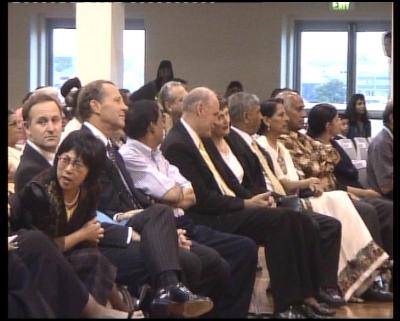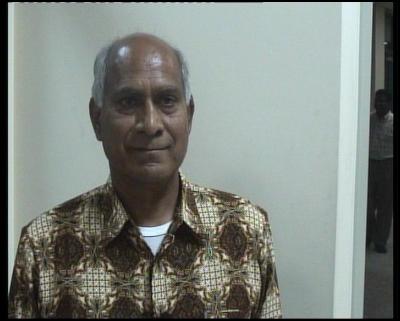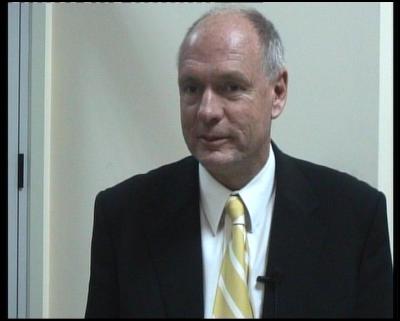National Wooing Indians after 100 years of Neglect
National Wooing Indians after
100 years of Neglect

The Indian community numbering over 100,000 has caught National party attention with an eye on the forthcoming general elections. Its leader John Key expressed a desire to have a couple of Indians in his caucus to reflect the changing landscape of the country’s diversity.
‘We believe very strongly in families, promoting successful small businesses, people being rewarded for their hard work, emphasis on education and safety in our society; if you put all those together, they personify the values of Indians in New Zealand and I think they are very aligned with the National Party and if that’s what the Indian New Zealanders believe in, I just hope in 2008 they will vote for change and they will vote for National government and I say that wholeheartedly because we can make a difference,’ said Mr. Key.
Exuding optimism he said ‘I am keen to have an Indian member of parliament in National’s ranks. We are proud to have Pansy Wong as a first Chinese Member of Parliament. I think our parliament deserves to have an Indian member of parliament. So this year our poll ratings look good and there seems to be enormous support for us.’
Under Don Brash’s leadership in the 2005 elections, for Mt. Albert electorate seat, National pitched an Indian candidate in Ravi Musuku against Prime Minister Helen Clark who romped home comfortably by more than 14,000 votes.
But Ravi made some strong dents in her camp by securing 8488 party votes for National, an increase of over 100 percent from the previous election. There was also an element of surprise in the Labour territory when he returned 6169 electoral votes.
He is keen to face the Prime Minister again in the elections this year.
He was heavily involved in door-to-door knocking campaign that saw John Banks return as the mayor of Auckland City in last year’s October local body elections.
Pansy Wong National MP is hoping for a repeat in Mt. Albert constituency of what happened in Australia when sitting Prime Minister John Howard lost his seat in the recent elections.
In the recent years, National has been targeting the Indian community and courting its ethnic mix to make inroads in Labour’s territory. They have started attending several events of different groups within the Indian community.
Labour excels in being a part of Indian celebrations including Prime Minister Helen Clark and many MPs from her cabinet.
While refuting the contention that National lags far behind Labour in wooing the Indians, insisting there has been regular meetings, Pansy acknowledged ‘there is always room for improvement.’

Dr. Ashraf Choudhary the first south Asian MP from Pakistan wanted to know ‘where National was in the last 100 years’ demanding ‘where were they? The Indian community has been around since that time.’ He recalled the closing of NZ High Commission office in New Delhi India by National and reminded that it was under David Lange’s tenure the mission was reopened when Sir Edmund Hillary was sent in as the High Commissioner.
Education and Ethnic Affairs Minister Chris Carter says ‘we have 5 people of south Asian heritage on our Labour party’s list but only Dr. Ashraf Choudhary was successful. This year you will see more and rather known names in the communities on Labour’s list.’
‘In politics words are cheap. It is the action that matters and Labour has consistently delivered on its promises‘he quipped.

He reeled off a number of firsts for his party citing among others, the appointment of the first non-European, non-Maori Governor-General Anand Satyanand of Indian origin holding the highest office in the country.
Dr. Choudhary said his party catered to the needs of the migrant ethnic communities by promoting policies that are fair, equal and just for everybody while National was conservative and served the interests of the rich.’
Interestingly, the battle of wooing the large Indian community is just not relegated to Labour or National. The 2005 general election saw almost all the parties fielding atleast a couple of Indians in their ranks though none made it to the Parliament.
The mood generally in the increasingly politically aware Indian community is of a growing concern of not having one of their own representatives in parliament. A great section in the camp wonders at this lack of representation despite having seen their numbers grow to over 100,000 in the last 150 years.
Traditionally the community has been perceived as very close to the Labour party although the ideology of the party does not amply reflect their way of life. It should have been more inclined towards the National party in the proximity to its beliefs. Where National failed, Labour gained by aligning itself through interaction, communication and regularly attending several of their events.
National has woken upto this disparity only recently and with John Key at National’s helm, a vigorous exercise is underway to be more involved in Indian activities and woo the community to its fold.
But some argue and contemplate ‘what has prevented a kiwi of Indian origin to grace the parliament so far?’ It is a million dollar question. While some attribute this phenomenon to political naiveté, there are others who speak of the absence of coherence within the segmented community.
There are voices that term it as an amalgamation of communities of community whose complex structure is bitterly divided from the inside on a host of factors such as language, regional, religious, cast and other ethnic factors. Infighting rules the roost, some say.
Some of the saner elements in the older generation have distanced themselves away from the dominating class who are ensconced in the various associations that have sprung up in the past years. They say intense rivalry, lack of respect & inclusiveness and utter disunity forced them off the scene. One classic example, they say, is associations and counter associations weaving a web of animosity and confusion.
Some in the community rued ‘speaking on a general scale, Indians have the tendency to bring the same mentality to their adopted countries.’ It is a hard task for a political party unaware of the complexities surrounding this heterogeneous community to win its favour.
Ravi Musuku who contested against the Prime Minister Helen Clark on a National ticket in the 2005 general election is no patriarch and perceived as a safe bet. He does not have any specific alliances with any major Indian organisations and brings with him genuine grass roots level of work ethic from both India and within the Mt. Albert electorate.
In March the pastor from Hillsborough Baptist Church in all likelihood is expected to win his party’s nomination to run against the Prime Minister in his quest to conquer Mt. Albert. This May he is also tipped to move up the ladder, raising his list ranking and increasing his chances of acquiring the elusive place in parliamentary seat.
The two major political parties this time have certainly come under increasing pressure to have a kiwi of Indian origin enter the sprawling Beehive. The complex battle for a large slice of the Indian vote has begun and only time will tell which party will romp home at the 2008 hustings with a kiwi Indian in tow.
Syed Akbar Kamal is Producer/Director of current affairs programme Darpan-The Mirror on Triangle TV & Stratos.
For complete video of this story and others, please visit www.teamworkproductions.co.nz
ENDS


 Gordon Campbell: On Why Leakers Are Essential To The Public Good
Gordon Campbell: On Why Leakers Are Essential To The Public Good Ramzy Baroud: Global Backlash - How The World Could Shift Israel's Gaza Strategy
Ramzy Baroud: Global Backlash - How The World Could Shift Israel's Gaza Strategy DC Harding: In The Spirit Of Natural Justice
DC Harding: In The Spirit Of Natural Justice Martin LeFevre - Meditations: Animal Encounters During Meditative States
Martin LeFevre - Meditations: Animal Encounters During Meditative States Ian Powell: Gisborne Hospital Senior Doctors Strike Highlights Important Health System Issues
Ian Powell: Gisborne Hospital Senior Doctors Strike Highlights Important Health System Issues Keith Rankin: Who, Neither Politician Nor Monarch, Executed 100,000 Civilians In A Single Night?
Keith Rankin: Who, Neither Politician Nor Monarch, Executed 100,000 Civilians In A Single Night?